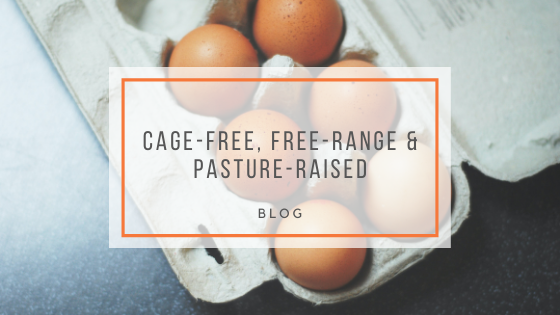DO YOU KNOW THE DIFFERENCE?

We’ve all heard the horror stories of caged hens, raised in inhumane and severely crowded conditions. Causing illness and unhealthy conditions within the cages and producing low nutrition within the eggs laid.
Many people purchase “cage-free eggs” because they assume they are raised humanly in the fresh air amongst their own kind, roaming “cage-free”.
Certified Pasture Raised is assumed by most people to be the same but with a little more benefits.
There is a significant difference between the three!
- Cage-Free: hens are still raised on Factory farms and are allowed to live and move in as little as two square feet of space due to overcrowding. They often still live their whole lives in a barn rather than in outdoor spaces and do not receive much if any sunlight. Essentially there are no significant nutritional differences between caged and cage-free eggs.
- Free-Range: is just a step up from Cage-Free. Hens are still Factory Raised for the most part with some access to the outdoors and sunlight. Still, there is no requirement for outdoor space size per bird and therefore the space is sometimes so small that very few birds are able to reap the benefits of sunlight. However, there are different requirements for different certification programs therefore space and times in the outdoors may vary.
- Pasture-Raised: hens are allowed to spend at least 6 hours of the day in the outdoors, in the sunlight in “pastures” covered with vegetation in uncrowded conditions with perks that include nesting boxes and perches. In some cases, they are raised in mobile coops so that the hens are able to be moved to different locations during the day in order to allow an abundance of insects and other food foraged by the hens while they fertilize naturally.
With regard to nutrition cage-free, free-range and pasture-raised eggs all have similar levels of fat and cholesterol, but pasture-raised eggs have three times more omega-3s, three times more vitamin D, 220 percent more vitamin E and 62 percent more vitamin A than eggs from caged and cage-free hens.
So, when you are out there trying to decide which eggs you should buy, consider what you want from your eggs in return as well.
